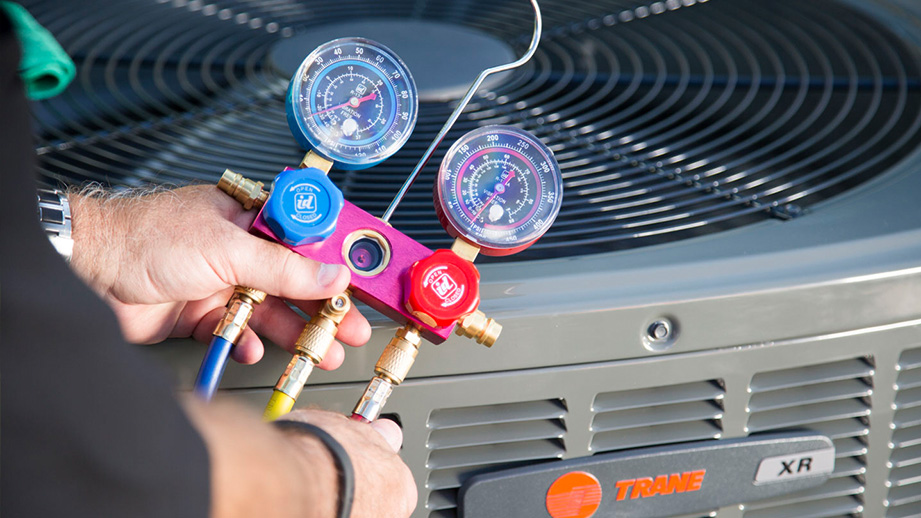Methods to Minimize Allergy Triggers with Your HVAC System

In this modern age, where we often find ourselves indoors, the importance of clean air cannot be overstated. Indoor allergens and pollutants can easily accumulate in indoor spaces, aggravating allergies and respiratory issues for many individuals. One of the best methods to combat these airborne irritants is through the use of an HVAC system. Understanding how to leverage the HVAC system can lead to a significant improvement in the air quality within your living space.
This article will explore useful techniques to reduce allergens using the climate control system. Whether you're a property owner aiming to improve comfort or someone keen on understanding the basics of HVAC, you'll find insights into keeping your HVAC system in good shape, selecting appropriate air filters, and maximizing airflow to create a healthier living environment. Let’s dive into how your HVAC system can work not just to provide heating and cooling, but also to ensure the air you breathe is clean and allergen-free.
Understanding HVAC
HVAC stands for Heating, Ventilation, and Air Conditioning, which are vital components of contemporary internal environment regulation. This setup operates to ensure ideal home and professional environments by controlling temperature, humidity, and indoor air quality. An HVAC system can be centralized or independent, with various designs crafted to meet various types of structures and personal needs. Understanding how these systems perform is essential for property owners and businesses alike.
The thermal component of an HVAC setup often includes heaters pump heaters, and boilers, which work to generate warmth in chilly periods. These installations use various power sources, including power, natural gas, or fuels, to create heat and distribute it in the environment via ducts or radiators. Alternatively, cooling systems are tasked with cooling indoor environment during sweltering months, employing refrigerants to capture and displace heat outside.
Ventilation is another essential feature of HVAC installations, as it facilitates new air exchange and improve interior air quality. This system involves both uncontrolled and mechanical methods to deliver outdoor air and expel stale air. Adequate ventilation not only reduces allergens and pollutants but also prevents issues like mold growth and excessive humidity, rendering it integral to a wholesome internal atmosphere.
Heating, Ventilation, and Air Conditioning Maintenance and Performance
Consistent maintenance is essential to ensure your HVAC system functioning efficiently. This entails swapping air filters frequently, ideally every one to three months, according to how often it's used and the kind of filter you have. https://articlescad.com/a-importance-of-hvac-in-business-environments-127865.html allows for optimized airflow, which aids your system work less hard to maintain a comfortable and cozy temperature in your home. Additionally, arranging yearly expert inspections can help identify potential issues before they become expensive repairs, ensuring that your system operates at peak efficiency year-round.
Adequate ventilation also holds a key role in maintaining HVAC efficiency. Keeping vents and ducts free from blockages enables air to flow unimpeded throughout your home. It is essential to inspect and clean your air ducts from time to time, as dirt and grime can accumulate over time, leading to lowered airflow and increased energy costs. By ensuring that your HVAC system has the necessary airflow it needs, you can improve its efficiency and prolong its lifespan.
Investing in regular maintenance not only boosts the efficiency of your HVAC system but can also result in substantial savings on your energy bills. When your system is functioning effectively, it uses fewer energy to warm or chill your home. Intelligent thermostats can support this by optimizing temperature settings based on your lifestyle and preferences, further minimizing energy consumption. Servicing your HVAC system with a focus on efficiency can cultivate a better living environment while keeping your costs in line.
Enhancing Indoor Air Standards
Boosting indoor air quality is essential for maintaining a wholesome living space, and your HVAC system plays a pivotal role in this aspect. A efficient HVAC unit helps filter away pollutants such as particles, pet hair, animal allergens, and various allergens that can lead to allergies and breathing problems. Consistent servicing, including changing filters and servicing ducts, guarantees that your unit operates efficiently and successfully promotes clean air circulation across your home.
A significant factor of improving indoor air quality is proper ventilation. Using ventilation methods can help get rid of stale air and introduce fresh outdoor air. Modern HVAC units often come outfitted with ventilation features that automatically adjust ventilation based on indoor air quality readings. This not just helps dilute indoor contaminants but also reduces humidity levels, which can avert the formation of fungus and mildew.
Lastly, choosing the right air filters is essential for capturing harmful allergens. High-Efficiency Particulate Air (HEPA) filters are engineered to trap tiny impurities, making them optimal for those allergic to allergens. Transitioning to these high-end filters can dramatically improve your home's indoor air quality, helping you breathe easier and promoting a more wholesome living space for you and your family.

